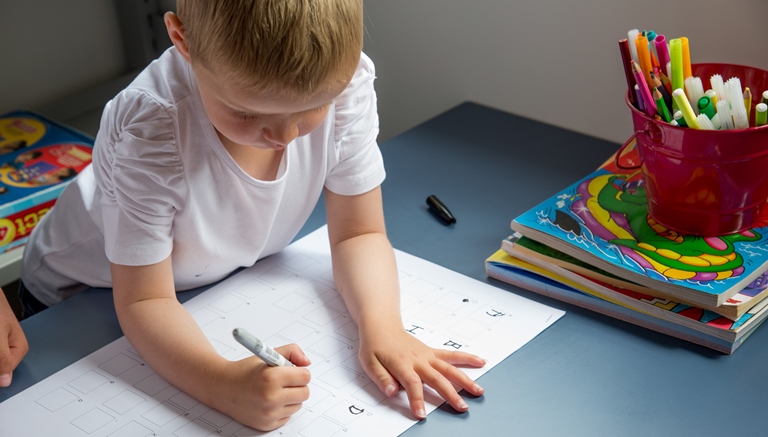Special Concerns For Your Young Child With Cancer
Special Concerns For Your Young Child With Cancer
In hospital, your child may become used to interacting with more adults than children and they may need more support from their early childhood teachers.
Key points to remember about special concerns for your young child with cancer
- your child may need more support from their teacher when they return because they have been used to interacting more with adults than children while in hospital
- encourage your child's teachers to help them connect with other children and participate in activities
- encourage teachers to set up a medical play area to allow your child to play through their experiences of illness and treatment

How can setting up a medical play area help my child with cancer?
It can be a good idea to encourage your child's early learning teachers to set up a medical play area.. This can allow your child to play through their experiences of illness and treatment. A medical play area can allow them to further develop their understanding and express their emotions about the changes to their world.
Remind teachers to give your child time and privacy as they may not want to talk about or play their experiences at first (or at all).
How can early childhood education teachers help protect my child from infections?
Young children recovering from cancer treatment are especially vulnerable to infections. Make sure your child's teachers understand the importance of contacting you if there are any children at your early learning centre who have measles or chickenpox. It is also important that other parents let your early learning centre know if their children have been in contact with anyone with these diseases. See Measles and chickenpox in children with low resistance to infection.
There is a letter template on this website that your child's early learning centre can download and personalise. They can use it to let other parents know about the importance of informing you about these diseases.
How can inclusive strategies help my child with cancer?
Talk to your child's early learning teachers about using inclusive strategies to support your child with cancer in both large and small groups. Ask teachers to encourage your child to actively take part in conversations and in group activities.
Teachers have reported that generally, young children experience less teasing and embarrassment than children in school.
How can teachers help keep my child with cancer safe during outdoor play?
Ask your child's teachers to keep a close eye on your child during outdoor play and physical activities. It may take them a while to regain their confidence and coordination. Younger children may also not understand that their friend cannot 'play rough'. Ask them to keep an eye out for signs of fatigue in your child.
Discover resources to help explain cancer to children
Can the Learning Support Early Intervention Service help my child with cancer?
In some cases, young children with cancer may be eligible for help from the Ministry of Education Learning Support Early Intervention Service.
The service works with families and early childhood educators who ask for help when they are concerned about the learning and development of young children. This may concern a child's developmental delay, disability, behaviour and/or communication difficulties.
The service can work with children from birth until they start school.
The early intervention teams work closely with specialists from the Ministry of Health to ensure children who need extra support can access it.
Specialists can include:
- audiologists
- physiotherapists
- paediatricians
- dietitians
- occupational therapists
This page last reviewed 21 April 2022.
Do you have any feedback for KidsHealth?
If you have any feedback about the KidsHealth website, or have a suggestion for new content, please get in touch with us.
Email us now